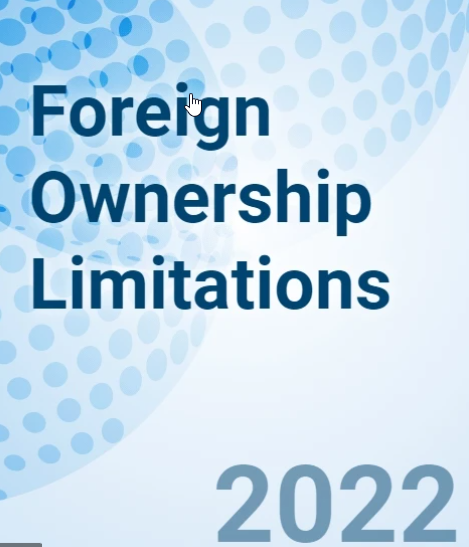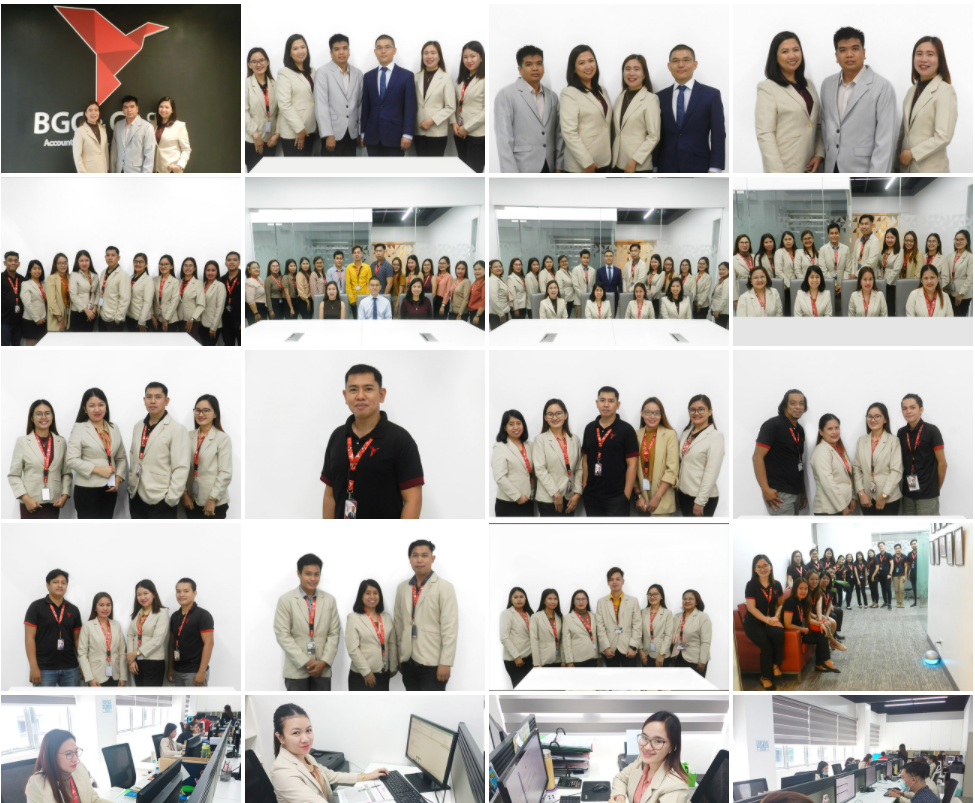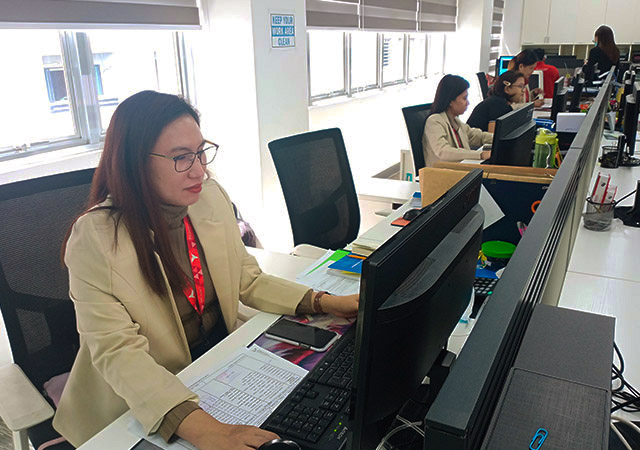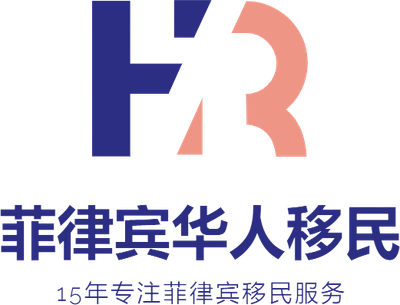菲律宾外资控股企业类型和服务Foreign Ownership in the Philippines

Foreign Ownership in the Philippines
The Foreign Investments Act has liberalized the Philippine economy and opened the doors to foreigners in most areas of investment especially those areas which “significantly expand livelihood and employment opportunities for Filipinos; enhance economic value of farm products; promote the welfare of Filipino consumers; expand the scope, quality and volume of exports and their access to foreign markets; and/or transfer relevant technologies in agriculture industry and support services.
As a general rule, there are no restrictions on extent of foreign ownership of export enterprises. For domestic market enterprises, where foreign ownership exceeds 40%, foreigners can have as much as a 100% equity investment with a US$200,000 inward capital remittance except in areas included in the foreign investment negative list.

Businesses with Foreign Investment Restrictions
Within the 1991 Foreign Investment Act (FIA), there are two negative lists also know as the “Foreign Investment Negative List” which defines the foreign investments which are limited or restricted by the Philippine constitution and specific laws.
a. List A covers areas of activities reserved to Philippine nationals by mandate of the Constitution and specific laws.
b. List B covers the areas of activities and enterprises regulated pursuant to law:
1. which are defense-related activities, requiring prior clearance and authorization from the Department of National Defense [DND] to engage in such activity, such as the manufacture, repair, storage, and/or distribution of firearms, ammunition, lethal weapons, military ordnance, explosives, pyrotechnics, and similar materials; unless such manufacturing or repair activity is specifically authorized, with a substantial export component, to a non-Philippine national by the Secretary of National Defense; or
2. which have implications on public health and morals, such as the manufacture and distribution of dangerous drugs; all forms of gambling; nightclubs, bars, beer houses, dance halls, sauna and steam bathhouses, and massage clinics.
Business Enterprises
There are different types of company formation which a foreign investor may choose from in setting up his business in the Philippines – a branch, corporation, a representative office, or regional headquarters. One important consideration to company formation is legal liability. A domestic corporation limits potential legal liability of the parent company because it acquires a juridical personality distinct and separate from that of its parent or shareholders. In contrast, a branch merely becomes an extension of the parent company and for purposes of investment law is considered fully foreign-owned.
Export Enterprise (Goods or Services)
If your future company in the Philippines is a domestic corporation (subsidiary) or branch office exporting goods or services or generating revenue from abroad amounting to more than 60% of its gross sales, it can be fully foreign-owned, as it is considered an Export Enterprise under the Foreign Investments Act. Both branch and domestic corporation options can be registered with as little as P5,000 paid-up capital. However, most banks require P25,000 – P50,000 to open a corporate bank account.
Most all foreign-owned “cost centers” such as call centers, contact centers, IT-BPOs, web development, and web design are eligible for classification as Export Enterprises and full foreign ownership. Some of these are even registered with PEZA to avail of tax and other incentives.
Mining
The mining industry in the Philippines is regulated by the government and subject to foreign equity restrictions because of the Constitutional policy that mineral resources are owned by the State and their exploration, development, utilization, and processing are under the its full control and supervision. The Philippine government may however directly undertake such activities or it may enter into mineral agreements with contractors, enter into co-production, joint venture, or production sharing agreements with Filipino citizens, or corporations or associations at least 60% of whose capital is owned by Filipinos with the other 40% foreign-owned. These agreements may be for a period not exceeding 25 years, renewable for not more than twenty-five years, and under such terms and conditions as may be provided by Philippine law.
Online Gaming
Online gaming operators must be compliant with the requirements in the CSEZFP Interactive Gaming Rules and Regulations and CEZA’s policies pertaining to the conduct of interactive gaming at the CSEZFP.
Retail Trade Enterprises
100% foreign ownership is allowed for Philippine retail trade enterprises: (a) with paid-up capital of USD 2,500,000.00 or more provided that investments for establishing a store is not less than USD 830,000.00; or (b) specializing in high end or luxury products, provided that the paid-up capital per store is not less than USD 250,000.00 (Sec. 5 of R.A. 9762). No foreign equity is allowed in Retail Trade Enterprises with less than the abovementioned capital.
With the help of the Joint Foreign Chambers in the Philippines, congress is debating whether to reduce the paid-up capital of USD 2,500,000.00 to USD 500,000.
Sole Proprietorship Business Registration – Philippines
A Sole Proprietorship is a business structure owned by an individual who generally has full control and authority over the business. The business owner is referred to as the “sole proprietor” and exclusively owns all assets and profits of the business. He or she is also personally liable for all the debts and losses that the business might incur.
As the simplest form of business in the Philippines, the business registration process for a sole proprietorship is relatively easy. Sole proprietorships are also the easiest to run since they do not have the same formalities and regulations that corporations and partnerships have, such as board meetings, board elections, share capital, etc.
How to Register a Sole Proprietorship in the Philippines
Since the law treats the owner and the business as the same, the sole proprietor only needs to register his or her name with the Department of Trade and Industry (DTI) and secure local licenses and permits to commence business operations.
Here’s a step-by-step process for registering a sole proprietorship in the Philippines:
- Register a business name with DTI to acquire a DTI Certificate of Registration;
- Register with the Barangay Office where the business is going to be located to acquire a Barangay Certificate of Business Registration;
- Register with the Mayor’s Office to acquire a Mayor’s Permit; and
- Register with the Bureau of Internal Revenue (BIR) to acquire a Certificate of Registration.
Advantages of a Sole Proprietorship
- Requires a minimum amount of capital
- Minimal regulations and compliance requirements from government agencies
- Easy to register
- Sole proprietor has complete control of the business
- Easy to manage, with no necessary formalities or regulations about having a board of directors, committee, or meeting minutes
- Sole proprietor acquires all assets and profits of the business and can freely mix business and personal assets
Disadvantages of a Sole Proprietorship
- Sole proprietor is subject to unlimited personal liability for the debts, losses, and liabilities of the business
- Sole proprietor cannot raise capital by selling an interest in the business or obtain capital funding through established channels
- No clear-cut definition between personal and business income because the sole proprietor is personally liable for the income tax of the business
- Sole proprietorships rarely survive the death or incapacity of their owners and hence do not retain value
- Business bankruptcy affects the owner personally
- Personal lawsuits against the sole proprietor can potentially consume all their personal assets and negatively affect the financial aspects of the business
- Lawsuits filed against the business are also deemed as lawsuits filed against the owner; creditors of the owner or of the business itself can reach both the business and the owner’s personal assets, and if such lawsuits are successful, the owner is obligated to pay the damages with his or her own money
Most small businesses in the Philippines start as sole proprietorships and progress to other business structures as they mature and increase profit. Since the Philippines does not adopt the legal concept of Limited Liability Company (LLC) or Private Limited Company (PLC) like many countries such as the United States of America, United Kingdom, and Singapore, the closest entity that Philippine sole proprietorships commonly transition to is a domestic corporation. A domestic or subsidiary corporation is a set of juridical persons established under the Corporation Code of the Philippines and regulated by the Securities and Exchange Commission (SEC). Unlike sole proprietorships, the legal entity of domestic corporations is distinct from their company owners so individual assets are separate from those of the company. Liabilities are also limited to the amount of an owner’s share capital.
Need Help in Registering Your Business in the Philippines?
BGC and Co. CPAs has registered hundreds of local and foreign companies in the Philippines. Our full spectrum of corporate services is guaranteed to help you enjoy a seamless business registration process.
BGC and Co. CPAs services include:
- Registering the sole proprietorship with DTI
- Securing local government registrations
- Sourcing out the commercial space
- Providing HR consulting and aid in drafting employee contracts
- Recruitment and executive search
- Outsourced accounting and bookkeeping services
- Payroll services
- Annual compliance
A sole proprietorship is a good way for an individual to set-up a business that will only participate in one or two primary objectives and have a very simple operation structure (e.g. small franchise, retail store). BGC and Co. CPAs can help you with the requirements and procedures to ensure the quick processing of your application and precipitate the commencement of your business.

BGC and Co. CPAs is a mid-sized progressive auditing firm providing comprehensive set of cost effective solutions to organizations like yours.
Our services include auditing, accounting, bookkeeping, business management, and HR consulting. Further, we provide other business services like VISA processing in Bureau of Immigration (BI), Philippine Retirement Authority (PRA).
We are equipped with state of art tools and techniques along with dedicated professional to evaluate potential opportunities and risks effective auditing and assurance services. We understand a value adding auditing and assurance service focus on scope of business improvement rather than merely preparing financial statements and reporting on figures.
The firm was formed to assist clients on the preparation of compliances relating to tax, financial management, forecasting and accounting software and system installation. Assist clients in tax investigations, internal auditing procedures and provide on financial, taxation, accounting and auditing matters when needed. Processing of business registration, cancellation / termination.
Our Mission
Deliver reliable cost effective professional services in time meeting specific customer requirements.
Our Vision
To become one of the best auditing and accounting firm in the Philippines providing the utmost satisfaction to all the clients. We would like to be known as one of the finest company to partnered with in all the aspects.
Our Team
Our teams of dedicated professionals led by senior qualified accountants are obliged to give you quality services which will enable you to serve your clients better and there by improve your business. We together with our associates enable to give you the best in the industry.
ABOUT OUR SERVICES
Auditing and Assurance
We are equipped with state of art tools and techniques along with dedicated professional to evaluate potential opportunities and risks delivering effective auditing & assurance services. We understand value adding auditing and assurance service focus on scope of business improvement rather than merely preparing financial statements and reporting on figures.
Our expertise in analyzing accounting systems, designing better systems with proper internal controls and management information reporting help our clients to adequately plan their business building strategy and give them the confidence to pace up with the rapidly growing economy.
Accounting and Bookkeeping

Accounting and bookkeeping is a necessity of every organization irrespective of its size. Our professionally qualified and experienced accountants understand and analyze business transactions and ensure compliance with the accounting standards. BGC has well trained staff familiar with many of the accounting system and most especially to the rapid changes in the BIR rules and regulations. Qualitative and timely accounting reports are crucial for the success of any business organization. BGC ensures relevant and reliable financial reports are delivered on regular intervals to assess performance and to facilitate decision making. Outsourcing of accounts department helps you to get professional expertise at lower cost and BGC provides the most efficient and effective bookkeeping solutions.
We assist you with below services:
• Accounts preparation and supervision
• Preparation and presentation of financial reports
• Bookkeeping services
• Payroll processing
• Training of accounting staff
Business Set-up and Termination
We do assist in setting up different types of business organizations through registrations to different government agencies such as:
• Securities and Exchange Commission (SEC);
• Bureau of Internal Revenue (BIR);
• Local Government Unit (LGU);
• Department of Trade and Industry (DTI);
• Social Security System (SSS);
• Philippine Health Insurance (Philhealth);
• Pag ibig;
• Food and Drug Administration (FDA)
We also assist our foreigner clients for the following:
• VISA extension;
• Bureau of Internal Revenue (BIR);
• 9g VISA;
• Special Resident Retiree’s VISA (SRRV)
• Social Security System (SSS);
• Passport Renewal
SERVICES
CONTACT US
ADDRESS
- 7TH FLOOR, PCCI CORPORATE CENTER, L.P. LEVISTE ST., SALCEDO VILLAGE, BRGY. BEL-AIR MAKATI, PHILIPPINES 1209
- Info@bgcco.ph
- lconvento@bgcco.ph
- Working Hours : 8:00 a.m - 5:00 p.m
PROFILE
AUTHORIZED INSTITUTION
菲律宾的外资所有权
《外国投资法》使菲律宾经济自由化,并在大多数投资领域向外国人敞开大门,尤其是那些“显着扩大菲律宾人的生计和就业机会;提高农产品的经济价值;促进菲律宾消费者的福利;扩大出口的范围、质量和数量及其进入国外市场的机会;和/或转让农业产业和支持服务的相关技术。
作为一般规则,出口企业的外资所有权范围没有限制。对外资持股40%以上的境内市场企业,除外商投资负面清单以外的领域外,外商可通过20万美元的资金汇入最多100%的股权投资。
外商投资限制企业
在 1991 年的《外国投资法》(FIA)中,有两个负面清单,也称为“外国投资负面清单”,定义了菲律宾宪法和特定法律限制或限制的外国投资。
一个。清单 A 涵盖了根据宪法和具体法律授权给菲律宾国民的活动领域。
湾。清单 B 涵盖依法监管的活动领域和企业:
1. 与国防相关的活动,需要事先获得国防部 [DND] 的批准和授权才能从事此类活动,例如制造、修理、储存和/或分发枪支、弹药、致命武器,军械、炸药、烟火和类似材料;除非此类制造或维修活动得到国防部长的特别授权,并具有大量出口成分,给非菲律宾国民;或者
(二)危害公共健康和道德的,如危险药品的制造、流通等;各种形式的赌博;夜总会、酒吧、啤酒屋、舞厅、桑拿浴室和蒸汽浴室以及按摩诊所。
商业企业
外国投资者在菲律宾开展业务时可以选择不同类型的公司形式——分公司、公司、代表处或地区总部。公司成立的一个重要考虑因素是法律责任。国内公司限制了母公司的潜在法律责任,因为它获得了与其母公司或股东不同的法人资格。相比之下,分公司只是母公司的延伸,就投资法而言,它被视为完全外资所有。
出口企业(商品或服务)
如果您在菲律宾的未来公司是一家国内公司(子公司)或分支机构,出口商品或服务或从国外产生的收入超过其总销售额的 60%,则它可以是完全外资所有,因为它被视为外商投资法下的出口企业。分公司和国内公司的期权都可以用低至 P5,000 的实收资本进行注册。但是,大多数银行需要 P25,000 – P50,000 才能开设公司银行账户。
大多数外资“成本中心”,如呼叫中心、联络中心、IT-BPO、网页开发和网页设计,都有资格归类为出口企业和完全外资所有权。其中一些甚至在 PEZA 注册以享受税收和其他激励措施。
矿业
菲律宾的采矿业受政府监管,由于矿产资源为国家所有,其勘探、开发、利用和加工受其全面控制和监督的宪法政策,因此受到外国股权限制。然而,菲律宾政府可以直接从事此类活动,也可以与承包商签订矿产协议,与菲律宾公民或至少 60% 的资本由其拥有的公司或协会签订联合生产、合资或生产共享协议。菲律宾人与其他 40% 的外资持股。这些协议的期限不超过 25 年,可续期不超过 25 年,并遵守菲律宾法律可能规定的条款和条件。
在线游戏
在线游戏运营商必须遵守 CSEZFP 互动游戏规则和条例中的要求以及 CEZA 关于在 CSEZFP 进行互动游戏的政策。
零售贸易企业
菲律宾零售贸易企业允许 100% 外资持股: (a) 实收资本为 2,500,000.00 美元或以上,但开店投资不少于 830,000.00 美元; (b) 专营高端或奢侈品,前提是每家商店的实收资本不低于 250,000.00 美元(第 5 节)
独资企业注册 – 菲律宾
独资企业是由个人拥有的业务结构,该个人通常对业务具有完全控制权和权力。企业主被称为“独资经营者”,独家拥有企业的所有资产和利润。他或她还对企业可能产生的所有债务和损失承担个人责任。
作为菲律宾最简单的商业形式,独资企业的商业注册过程相对容易。独资企业也是最容易运营的,因为它们没有公司和合伙企业具有的相同手续和规定,例如董事会会议、董事会选举、股本等。
如何在菲律宾注册独资企业
由于法律将所有者和企业一视同仁,因此独资经营者只需在贸易和工业部 (DTI) 注册其姓名并获得当地执照和许可证即可开展业务。
以下是在菲律宾注册独资企业的分步流程:
在 DTI 注册企业名称以获得 DTI 注册证书;
在业务所在的 Barangay 办事处注册,以获得 Barangay 商业登记证书;
在市长办公室注册以获得市长许可证;和
在美国国税局 (BIR) 注册以获得注册证书。
独资企业的优势
需要最低限度的资金
政府机构的最低法规和合规要求
易于注册
独资经营者完全控制业务
易于管理,没有关于设立董事会、委员会或会议记录的必要手续或规定
独资经营者获得企业的所有资产和利润,可以自由混合企业和个人资产
独资企业的缺点
独资经营者对企业的债务、损失和责任承担无限的个人责任
独资经营者不能通过出售企业权益来筹集资金或通过既定渠道获得资金
个人收入和企业收入之间没有明确的定义,因为独资经营者对企业的所得税负有个人责任
独资企业很少能在所有者死亡或丧失行为能力的情况下幸存下来,因此不保值
企业破产影响业主个人
针对独资经营者的个人诉讼可能会消耗其所有个人资产并对企业的财务方面产生负面影响
对企业提起的诉讼也被视为对业主提起的诉讼;所有者或企业本身的债权人可以同时获得企业和所有者的个人资产,如果此类诉讼成功,所有者有义务用自己的钱支付损害赔偿
菲律宾的大多数小企业都是从独资企业开始的,随着它们成熟并增加利润,它们会发展到其他业务结构。由于菲律宾不像美利坚合众国、英国和新加坡等许多国家那样采用有限责任公司 (LLC) 或私人有限公司 (PLC) 的法律概念,因此菲律宾独资企业通常过渡到最接近的实体。是一家国内公司。国内或子公司是根据菲律宾公司法成立并受美国证券交易委员会 (SEC) 监管的一组法人。与独资企业不同,国内公司的法人实体与其公司所有者不同,因此个人资产与公司资产是分开的。负债也仅限于所有者的股本金额。
在菲律宾注册您的企业需要帮助吗?
BGC and Co. CPAs 已在菲律宾注册了数百家本地和外国公司。我们提供全方位的企业服务,保证帮助您享受无缝的企业注册流程。
想了解更多欢迎联系和咨询我们,中文 微信BGC998 电报@BGC998
更多延伸阅读
